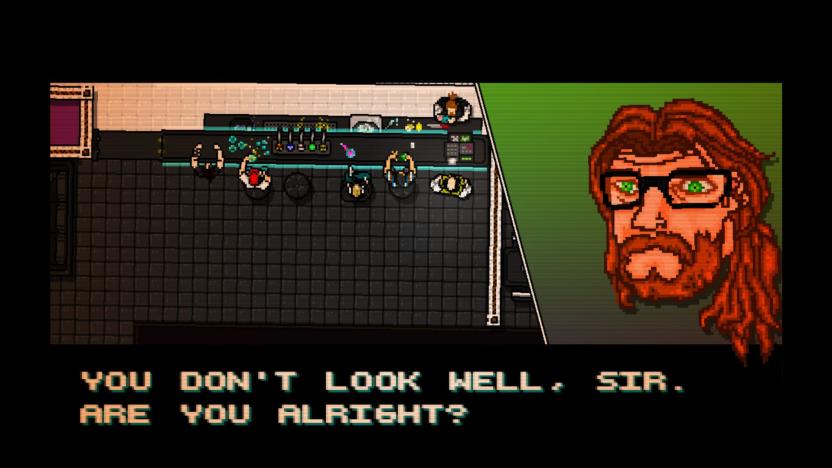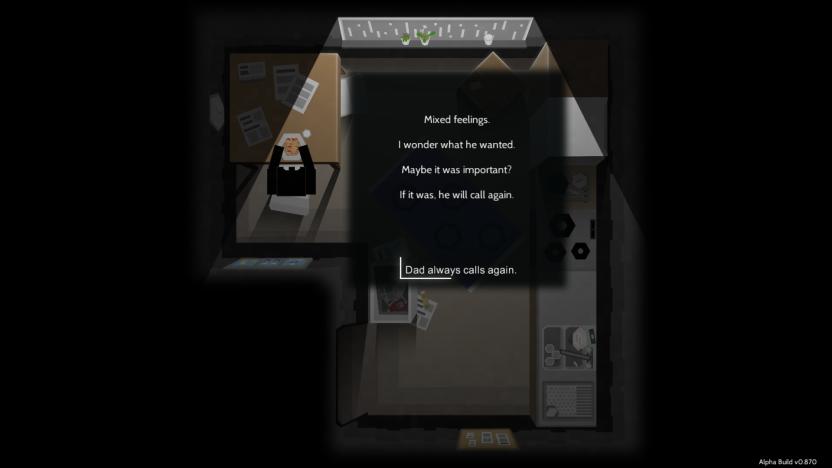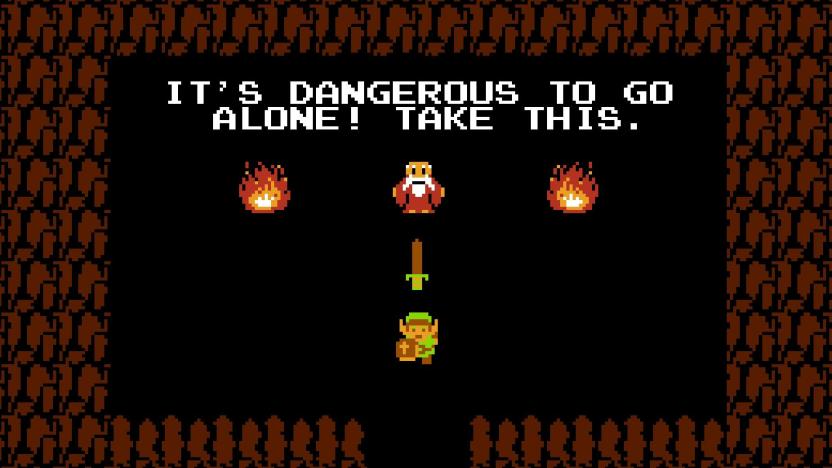mentalillness
Latest

MIT's AI can tell if you're depressed from the way you talk
When it comes to identifying depression, doctors will traditionally ask patients specific questions about mood, mental illness, lifestyle and personal history, and use these answers to make a diagnosis. Now, researchers at MIT have created a model that can detect depression in people without needing responses to these specific questions, based instead on their natural conversational and writing style.

It's time to talk about mental illness in indie development
This is normal. Heart pounding, hands shaking, head packed with static. The absolute inability to process what anyone is saying, let alone respond to it. Sitting alone at home -- lights off because you've been inside all day and the sun set hours ago, but your legs have been glued to the chair for just as long -- computer screen glowing. Wanting to be outside but unable to deal with the idea of people, conversation, smiling, pretending. Feeling worthless. This is normal.

Google search uses a medical quiz to help diagnose depression
Only half of Americans who face depression get help for it, and Google is determined to increase that percentage. As of today, it's offering a medically validated, anonymous screening questionnaire for clinical depression if you search for information on the condition. This won't definitively indicate that you're clinically depressed, to be clear, but it will give you useful information you can take to a doctor. And importantly, the very presence of the questionnaire promises to raise awareness and promote treatment beyond what a basic information card would offer.

'Please Knock on My Door' is a digital life of depression
At first, depression doesn't sound like the most thrilling topic to explore in a video game. It's antithetical to the boisterous, action-packed, neon-tinted tone that generally dominates the industry -- but that doesn't mean depression doesn't make for a compelling game. After all, video games are immersive experiences that can open up new worlds to people across the globe, inviting players to feel what life is like in another body, on another planet, in another universe. In another mind.

Fighting depression in the video game world, one AFK at a time
Matt Hughes took his own life in the fall of 2012. He was a freelance reporter covering the video game industry, and before he committed suicide, he sent emails to some of his editors, noting that he wouldn't be able to turn in more stories for one simple reason: He'd be dead. His suicide surprised nearly everyone who worked with him. Speaking with Kotaku days after Hughes' death, his former editors said things like There weren't any red flags and This was a complete shock. Hughes wasn't the only person in the video game industry to take his own life that year, and as the tragedies piled up, it became impossible to ignore their commonalities. Complete surprise. No one knew. She seemed fine. For Russ Pitts and Susan Arendt, two editors who had worked with Hughes and regularly interacted with dozens of other freelance reporters, these suicides were more than a shock. They were a wakeup call.

Scientists better understand the roots of schizophrenia
Scientists already know that schizophrenia has genetic roots, but the condition has still been something of a mystery. How, exactly, does it get started? Researchers at Harvard and MIT now have a better idea. Thanks to both lab testing and a 100,000-person sample of DNA, they've determined that an immune system gene (complement component 4, aka C4) can play an important role in the disease. If a variant of C4 is too active in pruning brain synapses (severing links between neurons) during adolescence, the risk of developing schizophrenia goes up -- it's breaking connections at a key point in development.

Video games are tackling mental health with mixed results
Mental illness occupies a strange place in video games. After centuries of misdiagnosis and misinterpretation, we've begun to comprehend the reasons behind disorders and their prevalence in modern society. Recent research shows that roughly one in five American adults suffers from some form of mental health issue each year. When it comes to the media, though, these conditions are frequently misrepresented and misunderstood, and video games in particular lean on lazy stereotypes and tropes. Mental illness is used as a motivation for villainy, thrown in as an "interesting" game mechanic or mischaracterized as the sum and whole of a character's personality. There's a worryingly pervasive stigma surrounding mental conditions, and as one of our most dominant art forms, video games need to do a better job in portraying them.

'Hellblade' is a terrifying journey through one person's mental hell
Hellblade has been shrouded in shadows since its announcement at Gamescom last year, but the veil is finally lifting. Developed by Enslaved, Heavenly Sword and DmC: Devil May Cry studio Ninja Theory, Hellblade is a dark, fantastical battle through the mind of the Celtic warrior Senua. Senua suffers from anxiety, depression, hallucinations and delusions, and the game presents some of these intangibles as literal demons for Senua to destroy. The studio wants to treat the subject with respect: The Hellblade team is working with Paul Fletcher, a professor of Health Neuroscience at the University of Cambridge, and the game is supported by global mental-health foundation Wellcome Trust.



